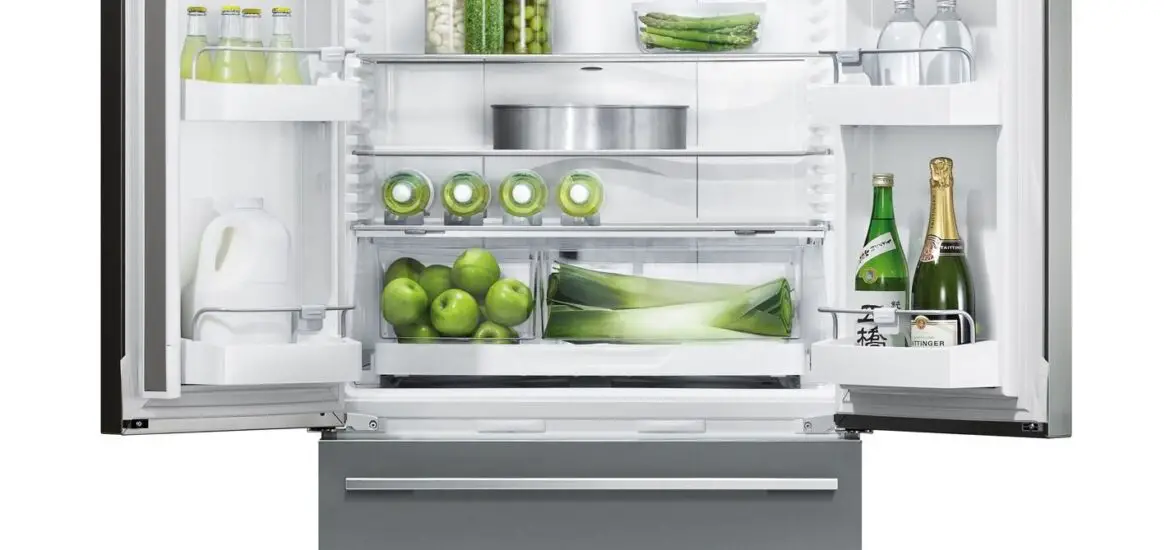If you find that a refrigerator compressor is bad, it is vital to find the cause of the problem. And when you see it, fix the problem quickly.

Table of Contents
How to Know If Your Refrigerator Compressor Is Bad – Quick Guide
To know if a compressor is bad, check for strange noises, clicking noise, overheating, or lack of cooling. Different issues lead to the failure of a compressor, and we will explain each one.
But first, let us look at each sign that tells you the compressor is bad:
1. Strange Noises
Typically, a compressor should make a low buzz or hum. From time to time, the noise trails off as the compressor goes off during the defrost cycle. After several minutes, the compressor comes back on with the same low buzz or hum.
But when the compressor begins to make a loud buzzing or humming noise, it means the compressor is bad. It may also make a vibrating or knocking noise. It does not necessarily imply the compressor has failed; sometimes, other factors cause the noise.
2. Clicking Noise
An overload causes the compressor to click on and off within short intervals. Too much heat can cause it, but a bad start relay also contributes to the noise.
The start relay supplies power to the compressor so it can start and run. If the relay stops working, the compressor will have a hard time starting. You will hear the clicking noise as the compressor tries hard to start and goes off within seconds.
If the condenser coils are too dirty, they won’t dissipate heat. Consequently, the heat transfers, and the unit begins to get warm. The same applies to the compressor as the heat transfers. The heat overload causes the compressor to turn on and off repeatedly, and the evidence is the clicking noise.
3. Overheating
Dirty condenser coils and low refrigerant cause the compressor to overheat. The coils overheat and cause the compressor to become hot. And when the refrigerant is low, the compressor works harder to run. If it continues to run with low refrigerant, the compressor will fail.
4. Lack of Cooling
When your refrigerator stops cooling or does not cool enough, the compressor may be the problem. The system may leak, leading to low cooling or no cooling at all.
Causes of a Bad Compressor
A faulty start relay, low refrigerant, dirty coils, or just age can cause the compressor to get damaged. It is crucial to check these factors to determine which is causing the bad compressor.
1. Start Relay
Detach the relay from the compressor and shake it. If the relay shakes or rattles, the relay is bad. Run a continuity test on the relay between its terminals using a multimeter to troubleshoot the component further. If the relay shows no continuity, replace the part.
2. Condenser Coils
The location of the coils will depend on the refrigerator brand. But you will find it either at the bottom back of the unit or behind the front grille. Check to see whether or not they are clean and if they are not, vacuum them. You can also use a condenser coil cleaning brush if you have one and you want a better result.
3. Age
The compressor may be old from constant use. In this case, the only fix is to replace the compressor. But if you are not sure, hire a qualified technician to check the compressor and determine its state.
If the compressor needs a replacement, it may be more cost-effective to replace the refrigerator. That is, if it is an older model. For a newer model refrigerator, you may have to replace the compressor because of the cost.
4. Low Refrigerant
If the refrigerant in the compressor is too low, the compressor tends to run more than it should to keep up. and because the compressor should not constantly, it wears itself out from the strain and fails. To fix this problem, hire a qualified and licensed technician to check the level of the refrigerant and top it if necessary.
Recap
It is important to fix a bad refrigerator compressor. The reason is that it is the center of the refrigerator’s functions. So if your refrigerator is to work optimally, the compressor should function well.
Check out these other articles…
Refrigerator Compressor Is Hot [Solutions]
How a Refrigerator Compressor Works [Quick Guide]
Refrigerator Compressor Burning Smell [Solutions]
Refrigerator Compressor Explosion [Critical Info]
Refrigerator Compressor Cycles [Issues Solved]
Get Instant Help — Ask An Experienced Verified Appliance Technician
Need expert help? Click here to use the chat box on this page to speak with a verified appliance technician right away. No need for expensive in-home service calls. No appointments. No waiting.